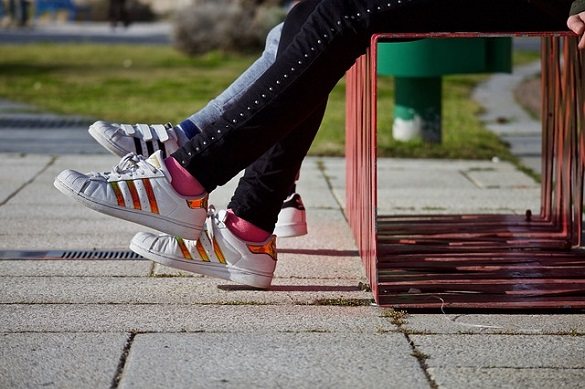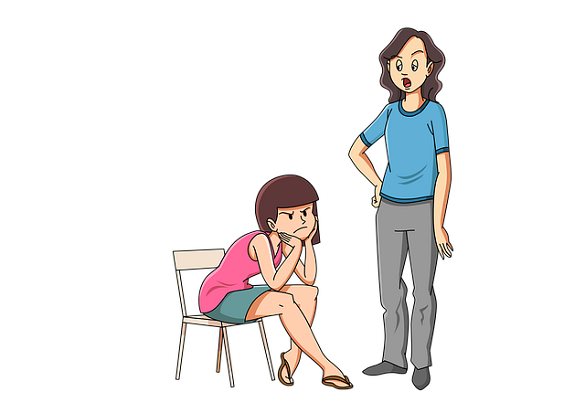26.02.2015 |
Adolescence is a very important period in life for any child. Boys are no exception. At this time, processes begin in the teenager’s body that indicate a leap in development. Nature starts this mechanism at the age of 9-14 years. The period is also called puberty, in principle, this is the beginning of puberty. Compared to girls, boys develop a couple of years later. Girls of 13 years old are fully formed, unlike boys who at this age still have a childish appearance.
How can parents cope with a girl's adolescence?
How to educate a child's personality? The answer is on the pages of our website.
What is adolescent psychology?
So what is a good definition of adolescent psychology? Adolescent psychology deals with the mental health of adolescents. Adolescence is usually between 13 and 19 years of age
. Psychologists help adolescents during this period with physical, moral, sexual and social development.
Important!
Adolescent psychology can help teens going through normal teenage changes and help them cope with their emotions. Adolescent psychology can help teens with mental disorders.

Psychological changes

Symptoms indicating the beginning of adolescence are also observed in the child’s psychology.
- Concentration and memory deteriorate at the initial stage of the transition period.
- Increased excitability of the central nervous system may be observed, the result of hormonal changes in the body.
- Tendency to depression, isolation.
- Increased aggression, including that directed towards parents.
- Protest against the surrounding world, conflict.
- Mental performance may decline between 14 and 16 years.
- Development of insecurity, decreased self-esteem, shyness.
- Excessive anxiety, nervousness may appear.
- Lability of emotions, impulsiveness, mood swings, frequent phenomena.
- The emergence of interest in representatives of the opposite sex, sexual attraction to them. The boy begins to be interested in personal relationships with his classmates; he sees beautiful girls in them. It is possible that the first sexual experience will occur during puberty.
How does a teenager's mind work?
Adolescent developmental psychology is concerned with many different types of changes. Development from childhood to adulthood is a complex process. It's not just about adding knowledge and understanding. Teens going through this period think, feel, and behave differently than children or adults. These differences can be seen in all stages of development.

Sexual and physical development
The physical signs of adolescence are obvious. At this time, boys and girls begin to grow pubic hair. They get taller, with girls reaching their full height at 16 and boys reaching their full height at 18. Girls begin to menstruate and their breasts enlarge. The boys' voices become rougher.
All physical changes bring changes to the way teens think and behave. They develop sexual awareness and attraction and may become sexually active. As long as they are healthy, their bodies are stronger and more coordinated than ever before, allowing them to excel in sports.
Important!
Teenagers have many opportunities as well as challenges related to their physical development. Adolescent psychology can help them understand the physical changes they are going through and how to deal with them positively.

Cognitive development
Adolescence introduces new ways of thinking. As children develop and learn about the world around them, they can think abstractly. Instead of understanding what they know about, they may imagine something they have never experienced. Because of this, they develop the ability to accept abstract concepts found in modern mathematics. They begin to understand spirituality and love.
Important!
Abstract thinking also makes teens more risk-taking because they feel invulnerable to harm. However, as they grow older, they develop reasoning skills and can think logically. They develop the ability to judge things for themselves. They can think through the possible consequences before they decide to carry it out.
Cognitive development does not happen overnight. During early adolescence, children primarily use their newfound abstract reasoning for school and at home. They begin to express their opinions about what they want to do and choose their own goals. They see short-term consequences, but not always long-term ones.
During middle adolescence, their thinking becomes more complex. They can imagine what their future will be like, but have difficulty applying these thoughts to the decision-making process. In late adolescence, teenagers begin to think outside themselves more. They can think more about what is happening in the world and the major issues facing society as a whole. They are extremely worried about choosing a career and what to do after they leave home.

Emotional development
During adolescence, adolescents turn to their peers for emotional support. They begin to have more conflict with their parents until their late teens. They become closer to their friends, experience many different emotions and become more independent from their parents
.
As they reach their late teens, they become more confident in themselves and their beliefs. They may seek out experiences and become sexually aroused easily. In late adolescence, they begin to better control their emotions. Much of adolescent psychology is concerned with teaching teenagers how to manage their emotions.

Moral development
Teenagers develop a sense of morality well into adolescence. They come from a stage in the development of power and social order in which they were focused on established rules. However, as they grow older, they begin to think about social opportunities. They are interested in doing what is mutually beneficial and doing what is morally right.

Supporting factors

No one can calculate in advance what time boys will begin adolescence. It all depends on many reasons. For some it is earlier, for others it is later. It is also impossible to answer how long it will last. In fact, the beginning and end of puberty can be influenced by certain factors, some of them will speed up the process, some will slow it down.
- Heredity. In a boy or teenager, the transitional age, as a rule, coincides with the onset of puberty in his father.
- Nutritional features. If the boy is not eating enough. He does not fully receive the products necessary for development, including vitamins, proteins and other biologically active substances; his puberty may begin later than that of his peers.
- Environmental influences. Adolescence may begin earlier if the child uses body care products that contain hormonal drugs, as well as when consuming certain foods.
- Hormonal disorder. Accelerated or delayed development of the transition period may occur due to deviations in the functioning of the endocrine system.
Teenage identity
Along with other aspects of cognitive, emotional, and social development, adolescents develop their own unique characteristics. From early adolescence to late adolescence, their thinking is influenced by adolescent egocentrism, more often in the beginning and less often in the future. Three features of teenage egocentrism:
- They are completely focused on themselves.
- They see themselves as special and unique.
- They think that others are focused on them and notice everything about them, what they say and what they do.

Teenage problems
Adolescent psychology deals with important issues that can have a lasting impact on a teenager's life. Some of these include independence, sexuality, drug use and peer relationships. Psychologists help teenagers solve these problems.

Independence
Teenagers must become independent in order to become fully grown adults. To do this they must:
- explore personality and develop a strong sense of who they are;
- become more aware of yourself, your thoughts and behavior;
- set and achieve goals.
Parents can help teens gain independence by allowing them to make their own choices and live with the consequences. At the same time, teenagers need the love and respect of their parents
. They need the support of parents who are confident in their children's abilities. They need guidance without strict control.

Sexuality
Adolescent sexual development involves many different tasks. The teenager needs to understand and feel good about the changes that are happening in his body. They need to learn to make decisions about what they do with their bodies, including sex
. They need to discover their sexual identity and learn to have healthy sexual relationships.

Drug use
Most teenagers will face the possibility of using drugs and alcohol. They should be aware of the consequences, but drug education should focus on the actual risks of drug use, not blatant horror stories.
Important!
For many parents, the key to preventing drug use is good education about the dangers.

Peer relationships
Peer relationships are extremely important for teenagers; they must learn how to build relationships. They have to deal with competition from their peers, socially. Child and adolescent psychology can provide them with tools for social interaction with peers and teach them to develop relationships that are important to them.

Tips for parents

It is very important for parents to find an approach to their teenager and maintain a trusting relationship. It must be remembered that adolescence is difficult because the understanding of life is already becoming an adult, and there are practically no opportunities for self-realization. At the same time, there is a high level of emotional sensitivity. Adolescence is a very controversial time, which is difficult for everyone, parents and their children, to survive.
How to achieve trusting relationships? Trust is a relationship between two parties. Parents who are worried about their teenager’s isolation should first answer the question: do they trust their child themselves? There is no need to drive him into a corner with interrogations, it is better to start a story about your life, and gradually your son will open up.
The conflict situation within the walls of the home definitely drives the teenager out onto the street. And adolescence requires that the boy be treated as an equal, because he already feels like a man. If you talk about yourself, you don’t need to create an ideal image; it’s better to remember your mistakes and failures, and reflect on how you should have done the right thing. Moral teaching only pushes the teenager away; it seems to him that he does not live up to expectations, and therefore he goes where he is perceived as an equal. Most often, this is the street.
Parents should try to keep their teenage boy and his friends close to home. It is especially important not to show that he doesn’t like his friends very much - during adolescence, this most often causes uncontrollable aggression in the child. Relationships improve when parents take into account the child’s interests - listen to his favorite music, ask what interests him on the Internet. It is important to be aware and not try to impose your opinion; in adolescence this is ineffective, but it can cause harm. A thin thread of trust can be torn for a long time.
Tolerance and support are what a boy needs in adolescence.
The Development of Moral Thinking: Kohlberg's Theory
The independence that comes with adolescence requires independent thinking as well as the development of morals—standards of behavior that are generally agreed upon within a culture to be right or proper. Just as Piaget believed that children's cognitive development follows certain patterns, Lawrence Kohlberg (1984) argued that children learn their moral values through active thinking and reasoning, and that moral development follows a series of stages.
Lawrence Kohlberg's Stages of Moral Reasoning
| Age | Moral Stage | Description |
| Small children | Preventative morality | Until the age of nine, children are focused on their own interests. At this stage, they avoid punishment and seek rewards. |
| Older children, teenagers, most adults | Ordinary morality | During early adolescence, a child begins to care about how different outcomes affect others and wants to please and be accepted. At this stage of development, people may value the benefits that can be derived from adherence to social norms in the form of laws or other rules. For example, a person at this level may say: “He should not steal a drug, since everyone will consider him a thief, and his wife, who needs the drug, will not want to be cured due to theft,” he should obey the law, because stealing is a crime." |
| Lots of adults | Post-conventional morality | At this stage, people use abstract reasoning to justify behavior. Moral behavior is based on their chosen ethical principles, which tend to be inclusive and universal, such as justice, dignity and equality. |

Characteristic manifestations

There are three stages:
- preparatory, also called junior adolescence - the psyche and body are preparing for impending changes,
- pubertal,
- postpubertal, the end of the formation of the psychological and physiological beginning.
During puberty, intense secretion of androgens occurs, which triggers physiological processes. This stage is called adrenarche.
Let's look at the signs of adolescence.
- Growth of external male organs. Initially, there is an enlargement of the testicles, which lasts for approximately 12 years. This also enlarges the penis. The frequency of erections increases, polytations are possible, normally they are observed every two days. Already at the age of 14, a teenager can form full-fledged sperm.
- Hair Growth. Initially, hairs begin to grow on the pubic area and at the base of the penis. At first the hairs are sparse, but become thicker over time. Six months to 18 months after the beginning of the appearance of hair in intimate areas, hair appears under the arms, around the nipples, and a kind of mustache and beard appears. It is necessary to understand that not all young men will have hair covering their entire chest, and some will grow hair on their back.
- Voice change. Under the influence of androgen production, withdrawal occurs. This is the result of accelerated development of the larynx, the vocal cords become longer and thicker. This phenomenon may be typical for 13 years. The voice of a boy, a teenager, becomes low. Voice instability may occur over several years. The final timbre will be established by age 15.
- Changes in muscle tissue. During this period, boys grow quite quickly, bones grow, and muscle mass also increases, which reaches its maximum value a year after the first signs of puberty appear. At the end of puberty, males have twice as much muscle mass as girls.
- Change of smells. Under the influence of sex hormones, changes occur in fatty acids that are part of sweat. Sweating increases and a specific unpleasant odor appears. There is also an increased production of secretions from the sebaceous glands, which causes the skin to become oily and the first acne to appear.
My son is a teenager. It’s been almost a year since puberty began, namely at 12 years old. During this time, he experienced certain changes characteristic of puberty. What surprised me most was the breaking of my voice, which I practically did not notice, which cannot be said about other relatives. There have also been changes in character. The son wants to be independent, wants to fulfill the role of a man in the family. But sometimes he has outbursts of anger in situations when something is forbidden, but he really wants it.
Teenage problems
Some common mental health problems faced by teenagers include:
- depression;
- suicidal thoughts and suicide attempts;
- self-harm;
- body dysmorphic disorder;
- eating disorders;
- anxiety disorders;
- mood disorders;
- schizophrenia;
- autism.
Important!
If a child is suspected of having any of these or other mental conditions, they should seek help from a psychiatrist. Addressing these issues during adolescence not only helps them survive the tumultuous teenage years, but also gives them a chance at a better future.

Teen wrestling
The teenage years are difficult for every teenager. However, some teenagers have more problems than others. If your child is experiencing extreme emotional distress or is having problems with daily functioning, you need to help them as soon as possible.
Every parent suffers when their child struggles. You must take care of your mental health if you want to be emotionally strong to provide your teen with the support they need.

Psychology books for teenagers
| Book title | book author |
| On the teenager's side. | Francoise Dolto. |
| Neuroses in children and adolescents. | Alexander Ivanovich Zakharov. |
| Growing brain. How neuroscience and mindsight skills help overcome the problems of adolescence. | Daniel Siegel. |
| Rules for communicating with children: 12 “don’ts”, 12 “can’s”, 12 “musts”. | Nina Zvereva. |
| Special Forces Dad. Mission Possible. | Neil Sinclair. |
| How to spoil a child with upbringing. Bad advice. | Virginie Dumont. |
| Am I a bad mother? And 33 other questions that ruin the lives of parents. | Ekaterina Krongauz. |
| To love or to educate?. | Ekaterina Murashova. |








